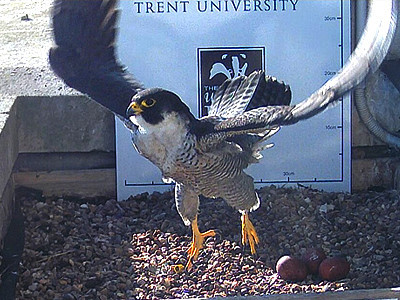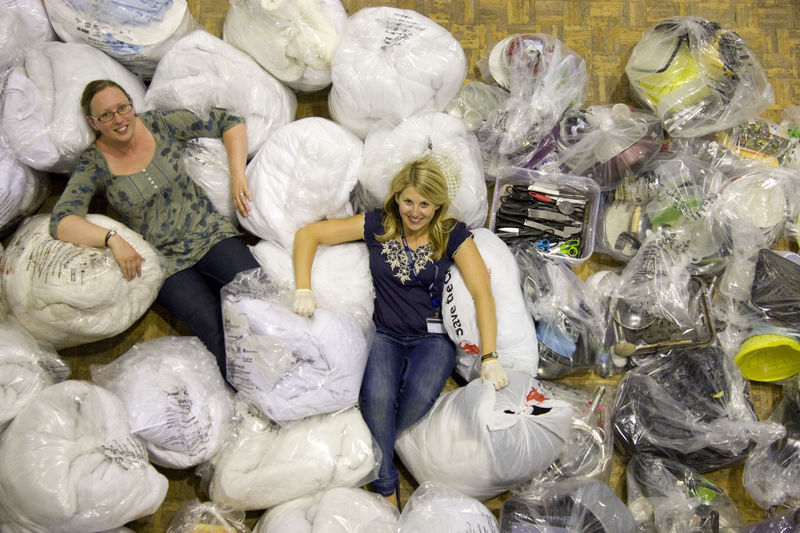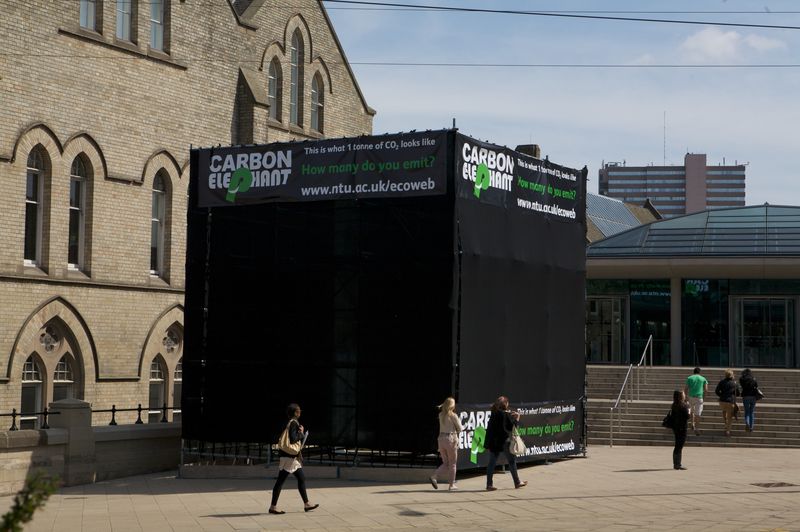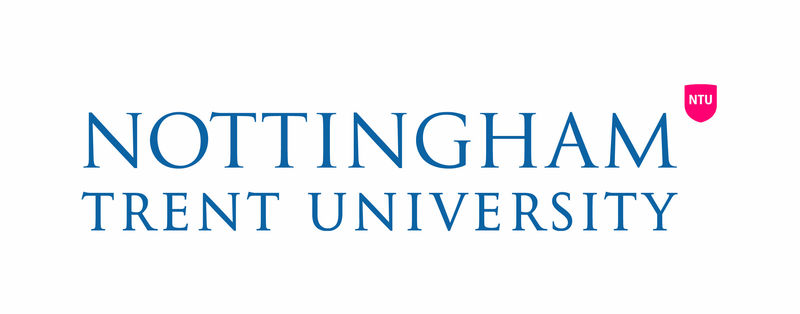Nottingham Trent University
Nottingham Trent University sponsored the 2012 Green Gown Awards sustainable dinner.
Environmental change is one of the fastest growing concerns in the world today, and one that thrusts responsibility onto those inhabiting it to reduce their impacts. Nottingham Trent University (NTU) is among those organisations making positive efforts to reduce the effect its activities have on the environment and promote sustainable principles to its staff and students.
A Platinum Year
This year has been a positive year for the University’s environmental credentials. In November NTU became the largest of just a handful of universities to achieve the final, platinum level award for their Environmental Management System, EcoCampus. This helps us to identify and manage our key environmental impacts.
Other recent achievements include a Green Gown Award for the continuous utilisation survey taking place across the entire estate. A team recorded the number of people occupying every reserved teaching room, and some offices, every hour over the course of a year to analyse use and identify trends. This has resulted in spaces and whole buildings across the estate being used more efficiently. In addition, the University’s Chief Financial and Operations Officer, Stephen Jackson, won the Business Green Leaders Sustainability Executive of the Year Award for his support of green initiatives within the University. Our Students Union continues to strive to reduce it’s carbon emissions by retaining a Gold Standard in the NUS Green Impact Students Union awards.
Most recently NTU has been awarded two Green Flag awards on both Brackenhurst and Clifton campuses, for excellent grounds management including biodiversity and opportunities for the community.
Beyond Greening the Curriculum
Our recent updated strategic plan included a new graduate attribute for all our students, regardless of what they study. It is to leave NTU with a knowledge of environmental, social and economic sustainability. Good progress has been made by academic colleagues in this area with individual schools responsible for checking they are meeting the attribute. To further enhance our knowledge of teaching sustainability, we have planned a primer workshop for Autumn 2012. With all NTU schools represented by key individuals like programme leaders, this two day training event will give them support on how to weave sustainability in to any subject area and then disseminate this expertise with their colleagues afterwards.
Transport
Sustainable travel is easy on and between the three campuses at NTU. Cycling is one mode of transport growing in popularity, thanks to new schemes and infrastructure across the university.
The Ucycle project aims to increase cycling within Nottingham. NTU has a fleet of 280 Ucycle bikes that are hired to staff and students for the year at £35 plus a deposit. This year the entire fleet was hired out and the number of bikes on campus has more than doubled. This is also due to improvement of facilities on campus, including new showers and drying facilities, smart card access compounds and the opportunity to attend cycle maintenance classes and ‘Dr Bike’ sessions, for tune-ups or repairs. With the help of Ucycle there are also cycle maps of the surrounding area available for those wishing to ride further afield.
Encouraging these alternative, more sustainable transport options to staff is of great significance to reducing carbon emissions. The ‘Scope 3’ carbon footprint of just the universities business travel over a year has been calculated at almost 2,500 tonnes CO2e. These emissions are also being cut by reducing parking spaces on site and introducing a car sharing scheme on Clifton campus, new for 2012.
Biodiversity
The most famous example of biodiversity at NTU is the wild pair of Peregrine Falcons that have been naturally nesting on the roof of the Newton building in the city centre for over a decade. Since 2006 they have been successfully raising chicks following the insertion of a nest box. The pair have also become an internet sensation over the past two years with thousands of viewers from around the world watching a 24/7 live web stream of their rooftop home. Now in HD with an accompanying blog, their following has continued to grow along with the family.
On Newton roof however, the biodiversity stretches beyond the birds and down into the architecture. One of the region’s largest sedum roofs spans its way 2,500m² across the building, creating a home for 13 varieties of sedum, insects, songbirds and a new colony of honey bees, complete with webcam, creating a trio of hives over all campuses.
Other examples of biodiversity across the estate are on Clifton Campus, which has a nature walk with a resident Green Woodpecker and all manner of insects and birds in the native woodland. This population is sure to grow following the installation of hedgehog, toad habitats and new plants at the new Superlab development.
Finally, Brackenhurst plays host to the endangered Great Crested Newt. It has a working farm and rural location resulting in a campus teaming with life in ponds, barns and woodland. This is encouraged with the installation of bat and owl boxes, which this year may have recorded the UK’s first Tawny Owl chick of 2012.
Waste
At NTU 89% of waste is currently recycled, a high percentage of this through segregation on site. Engagement initiatives include a touring recycling display, demonstrating the recycling rate of each NTU building.
Students are also encouraged to recycle through ‘The Big Clear Out’ campaign, which ran for the third time this year. This scheme, with the help of staff and student volunteers, collects unwanted items at the end of the academic year as students move out of halls of residence. These items, including kitchenware, duvets and clothes are donated to local charities. This year well over 4 tonnes was collected. This year also saw the launch of a new pilot scheme in partnership with The British Heart Foundation (BHF) and Nottingham City Council. Targeting students living in privately rented housing in the Arboretum, the items they no longer need are donated as they move out through temporary banks located in the area, in the first month this raised £2000 of stock for BHF shops.
Energy and Carbon
NTU has ambitious carbon reduction targets as set out by the Carbon Elephant group, created to manage the University’s emissions.
The University has worked hard to reduce this footprint since its first carbon management plan in 2008 and has recently started to deliver our first real absolute carbon reductions.
The Engineering team in particular have delivered many projects providing energy and carbon savings. One example includes upgrading the lighting at the Lee Westwood Sports Centre at Clifton campus. This new system can be altered to accommodate many of the different activities that take place in the sports hall as well as incorporating sensors that monitor room use and turn the lights off when vacated.
Also at Clifton, in the campus data centre, cooling operations have been upgraded and taken over by a more efficient replacement. The installation of the Celsius Design Ltd evaporative cooling system has delivered a 90% reduction in annual running costs, with up to 40% of this energy being generated by Solar PV panels on the roof.
Our IT department have also weighed in with some great contributions including the PC shut down scheme where computers automatically hibernate when not used, this saves an approx 240,000 KwH per month.
Another large contribution comes from overall estate efficiency. Since 2009/10 the estates department, working in collaboration with all NTU colleges, managed to reduce the overall floor space footprint by 2602m2 in one year, with the reduction in area expected to continue without impacting on the level of service to students. These larger projects are combined with engagement initiatives designed to positively change behaviours and attitudes towards the environment. These include Green Impact and Green Week, which sees the display of NTU’s Carbon Cube, a visualisation of a tonne of CO2.
Main Contact Name: Grant Anderson, Environmental Manager
Main Contact Email & Telephone: [email protected] and 0115 8482320
Further information/website: www.ntu.ac.uk/ecoweb
Share with us: www.twitter.com/NTUEnvironment www.twitter.com/NTUFood4Thought














